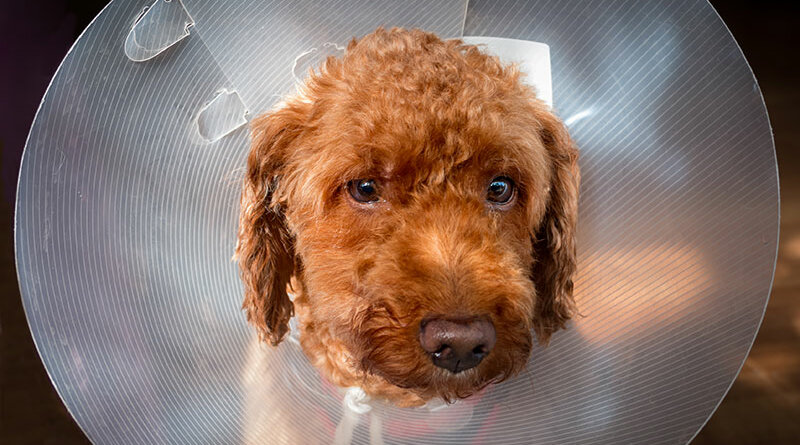Spaying or Neutering Your Dog
There is a lot of confusion about when you should alter—spay or neuter—your dog. There is even conflicting evidence about whether you should have it done at all!
The decision to have your dog altered is one of the biggest choices you will make as a pet owner. There are definitely some benefits, but what about the risks? Most veterinarians recommend it, but is it always the right choice?
There is no right or wrong answer to these questions. It depends on you and your dog.
This discussion considers reasons to spay or neuter, and some of the reasons not to. We’ll give you some advice for particular situations so you can educate yourself further. Use this information to have a conversation with your veterinarian, and to make the right choice for your dog. (If you don’t have a veterinarian, check out this guide on how to choose a vet.) And if you’ve recently adopted a dog or are thinking about adopting one, don’t worry too much about the age at which he or she was altered. The best thing you can do to keep your altered dog (or any dog, really) healthy is to be careful with their diet. Avoiding obesity makes other risk factors much less likely.
GET THE BARK IN YOUR INBOX!
Sign up for our newsletter and stay in the know.
Why Spay or Neuter Your Dog?
There are proven benefits, some related to health, some to quality of life.
Spayed female dogs:
•Are much less likely to get mammary cancer if they are spayed at a young age.
•Cannot get pregnant, eliminating risks that come with giving birth (and saving you from looking after and finding homes for puppies).
•Cannot get womb infections (pyometra). Older dogs are especially vulnerable to this serious disease, and treating it usually involves emergency surgery, which is risky.
•Don’t come into season, preventing the mess in the house and unwanted attention from male dogs.
•Don’t experience “false pregnancies.” Sometimes, when a dog comes out of season, her body thinks she’s pregnant, which leads her to build nests, produce milk and act like she has puppies, behaviors that may require medical attention to address.
Neutered male dogs:
•Generally behave better after neutering. Aggression is reduced and they can be easier to live with. (If your dog has problems with aggression, get behavioral advice before you have him neutered.)
•Are less likely to get certain cancers.
•Are less likely to get prostate disease.
What Are the Risks of Spaying or Neutering?
The procedure itself is very safe. Surgery is a scary word, but serious complications are very rare. There are, however, some risks to be aware of.
Dogs who have been altered are more likely to develop the following:
•Certain cancers.
•Cruciate ligament disease.
•Hip disease.
•Obesity.
•Incontinence (in female dogs spayed at a very young age).
When considering spay/neuter for your dog, it is important to balance the benefits against the risks. While the risks can be serious, they are rare, and the benefits apply to every dog. Choosing the right time to have your dog altered further minimizes the risks and maximizes the benefits.
Obesity is one exception. Altered dogs are always at higher risk of becoming overweight. However, being mindful of the way you feed your dog—both amount and content—can offset that problem.
What about incontinence? Spayed female dogs are more likely to be incontinent than intact females, but this is actually not as straightforward as it seems. Spaying doesn’t cause incontinence. Some female dogs are slightly incontinent from a very young age. As puppies, they have a condition called urethral sphincter mechanism incompetence (USMI). Dogs with USMI can’t squeeze the muscles at the opening of the bladder hard enough to stop urine leakage.
What usually happens is that when puppies with USMI reach puberty, this changes. Sex hormones cause the bladder muscles to get stronger, and the incontinence goes away. If a dog is spayed before puberty, this shift never happens. Basically, they didn’t become incontinent because they were spayed, but because they were spayed, the problem couldn’t resolve. While USMI is uncommon and unfortunate, it is manageable, easily treatable with medication. This is one of the main reasons to pay attention to timing.
Shelters and Spaying or Neutering
Many people choose to adopt adolescent or adult dogs from shelters rather than buying them as puppies. This is a great way to get a dog, and has many benefits. For example, you will have a better idea of the dog’s personality and how big they will grow. Adopting also helps reduce pet overpopulation, and often literally saves a dog’s life.
That being said, most states or shelters have their own rules regarding spaying or neutering, and you might not have much say on when that happens. Lots of shelters will alter dogs before they are adopted. Shelters take the problem of pet overpopulation seriously and this is the best way to prevent unwanted puppies. So, it’s important to remember that spay/neuter doesn’t just affect your dog, it benefits dogs as a whole by keeping dogs out of shelters.
If you adopt from a shelter and do have a choice on when your dog is altered, take note of these guidelines. I want to reiterate something here: While the benefits of spay or neuter almost always outweigh the risks, having it done at the wrong time exposes your dog to less benefit and more risk. Essentially, timing depends on when they hit puberty. Breed and sex influence this, so here are some scenarios that might help you make this decision.
•When should I have my small-breed male dog neutered?
Small-breed male dogs are the easiest to choose a time to neuter. The risks are always much lower and the benefits stay the same. Smaller-breed dogs hit puberty earlier, so they can be safely neutered at a younger age. For this type of dog, the best time to is when he’s about one year old. Because the risks are so low for them, you can even neuter small-breed dogs before puberty .
•When should I have my large-breed male dog neutered?
Large-breed dogs are at higher risk of developing issues after neutering than are smaller breeds. Joint problems and cancers are among the problems they can have if neutered too early. I recommend waiting until the dog has passed through puberty, or 18 to 24 months at the earliest. The bigger the breed of dog, the longer you should wait. Rottweilers are at particular risk of cancer after neutering, so I suggest waiting even longer before having them neutered.
•When should I have my female dog spayed?
The most important factor in deciding when to spay isn’t breed. It’s the number of times they come into heat before being spayed. Breed will influence when they first come into season, but because dogs vary, I can’t give specific ages.
Every time a dog comes into season, her risk of cancer and womb infection increases. After three seasons, the risk of cancer hits a maximum level.
A dog shouldn’t be spayed while she’s in season. If you want to have her spayed before she ever goes into season, six months old is a good target.
The best time for most female dogs to be spayed is three months after their first season. For very small breeds, spaying before the first season is okay, and for very large breeds, I suggest waiting until she’s had two seasons. There is, however, no benefit to waiting any longer than this.
Finally, if she’s not perfectly toilet trained, wait until she’s had her first season before having her spayed.
What to Expect After Spaying or Neutering
It’s helpful to know what to expect when your dog is altered so you can be prepared for it.
A veterinarian performs the procedure, which is a routine operation, under general anesthetic. The surgery is very safe with very low complication rates, and most dogs have quick, problem-free recoveries.
Usually, dogs are brought to the clinic on the morning of their surgery and go home the same day. As dogs are recovering, they need a bit of extra care; read this great guide on what to expect so you can be ready (Editor’s note: Vet Patty Khuly, who wrote the guide, has also written for The Bark on a variety of topics, including bloat.)
Final Thoughts
Without doubt, altered dogs are likely to live longer, healthier lives and are also easier to live with. You might not always have a choice in when to have the spay/neuter done, but it’s still the right thing to do. When timing is up to you, I encourage you to work with your vet to choose the best option for your particular dog.





top 10 pharmacies in india https://indiapharmacy.pro/# – best online pharmacy india indiapharmacy.pro
blackweb official website dark website deep web links